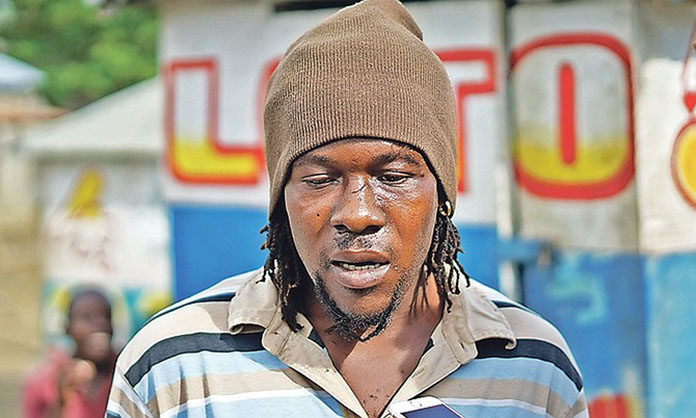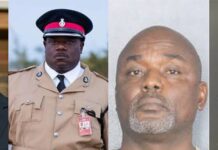
WATCH PRIVY COUNCIL CASE LIVE HERE: https://www.jcpc.uk/live/court-03.html
NASSAU, BAHAMAS – In the five years since becoming a flashpoint in the debate about immigrant rights in The Bahamas, Jean Rony Jean-Charles says he just wants to find consistent work, get key documents and stay out of trouble.
The soft-spoken Bahamas-born resident was thrust into the spotlight when Supreme Court Justice Gregory Hilton ruled in 2017 that his detention and expulsion from the country were unlawful, that he was deprived of his personal liberty, and falsely imprisoned in breach of his constitutional rights.
The ruling, which was overturned by the Court of Appeal, had potentially far-reaching implications for how the country’s immigration and citizenship laws are applied.
Today, Jean-Charles’ appeal of the Court of Appeal ruling will be heard at the Privy Council, the likely final stage of a saga that has left him with an uncertain future.
Immigration officers arrested Jean-Charles in early September 2017.
He was flown to Port-au-Prince, Haiti on November 24th after authorities said he could not prove he was in the country legally.
Justice Hilton later ordered that the Bahamas government issue him a travel document and reimburse him for his return to the country.
Hilton ordered that he be issued legal status no later than 60 days after returning.
However, the Court of Appeal set aside the Supreme Court ruling. Sir Michael Barnett and other appellate judges said there could be no finding of a constitutional breach to his detention and deportation because of the lack of certainty over his identity.
The Court of Appeal also granted him permission to appeal their ruling to the Privy Council.
COURT REF:
Issue
Was the Court of Appeal correct to conclude that the Judge should not have determined a constitutional application under Article 28 of the Constitution of The Bahamas (providing for the enforcement of fundamental rights) in circumstances where a writ of habeas corpus was dismissed?
Facts
The Appellant was born in The Bahamas in 1982. In September 2017, he was arrested and detained by immigration officers after failing to produce documents proving his lawful presence in The Bahamas. He was expelled to Haiti on 24 November 2017. The Appellant was not charged with any offence or taken to any court prior to his expulsion, nor was any detention order made in respect of him.
An ex parte application for a writ of habeas corpus was issued on the Appellant’s behalf, followed by an application for constitutional relief pursuant to Article 28 of the Constitution. Hilton J dismissed the writ of habeas corpus but granted constitutional relief to the Appellant, finding that his detention and expulsion had been unlawful and that his constitutional rights had been breached. Hilton J made various remedial orders which facilitated the Appellant’s return to The Bahamas, where he remains to date.
The Respondents appealed to the Court of Appeal on the basis that it was not open to the Judge to determine the constitutional motion after having dismissed the writ of habeas corpus. The Appellant cross-appealed the decision to dismiss the writ of habeas corpus. The Court of Appeal unanimously allowed the Respondents’ appeal and dismissed the Appellant’s cross-appeal.
The Appellant now appeals to the Board contending that Hilton J was correct to grant him constitutional relief or, alternatively, that the Court of Appeal should have exercised its jurisdiction to grant such relief.
Jean-Charles told Eyewitness News yesterday that he is anxious for his case to be resolved.
“Things are a little better than before but its still slow,” he said about his life in recent years. “I found work, it ain’t no work around right now but I worked in Lyford Cay.”
“I have a travel document copy. It’s still the only documentation I have. (I need documentation) to get myself back together because I really want to work and I can’t really get nothing to do right now, things are tough.
“I just stay out of trouble and there is nothing to do so I stay home.”
“I think (my case), this is a chance where they (immigration) can know not everyone you see you just pick them up and treat them any kind of way. Have them in there forever, they don’t even check on them like that, you could be sick in there and don’t really care until you die and that’s when they gonna check and it’s too late.”
If he wins his case before the Privy Council, Jean-Charles said the first thing he will do is try to find a steady job so he can buy his own stuff.







